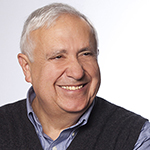Stanford Autism Center to Hold Annual Autism Symposium April 19
This year’s theme is “Connections: From Brain Circuits to Social Engagement”
For Release: March 20, 2014

STANFORD, CA. – Having a child with autism is challenging, but what happens when the child becomes an adult and ages out of a traditional support system? The Stanford Autism Center at Lucile Packard Children’s Hospital and Stanford Medicine Children’s Health will offer some answers to that question and much more on April 19 at the seventh annual Autism Spectrum Disorders Update, an event that gives members of the community a chance to learn about new autism research and therapies.
Autism experts from the center and across the country will lead the discussion, which will bring together doctors, parents, caretakers and educators for the daylong event. It’s one of many educational opportunities the team offers to parents and caregivers of children with autism.
“We do not want to be in a silo doing research out of touch with the people who care and know so much about autism. We want to engage with parents,’’ said center director Carl Feinstein, MD, who is also a professor emeritus of psychiatry and behavioral sciences at the Stanford School of Medicine. “There is huge concern about when these children become young adults. What happens to them when all the educational support goes away?”
This year’s theme, “Connections: From Brain Circuits to Social Engagement,” will give parents insight into the latest science, research and therapies for individuals living with autism and will focus on social connectedness.
Topics at the event include:
- How to foster social skills for young people with autism.
- How the brain circuitry for individuals with autism functions differently than typical adults.
- The effects of Oxytocin on children with autism. What an individual with autism needs to succeed at college.
The day will include breakout sessions that allow attendees to ask questions of the experts and researchers.
“This is a very important event for us,” Feinstein said. “What the parents tell us at our breakout sessions is what we talk about in our work.”
Dedicated to diagnosing, treating and advancing research into autism spectrum disorders, the Stanford Autism Center is involved with ongoing research and offers a multidisciplinary approach to care from experts in developmental pediatrics, psychology, psychiatry, neurology, genetics, molecular and cellular physiology, neurobiology and cognitive neuroscience.
The symposium will take place April 19 from 8:15 a.m. to 4:30 p.m. at the Arillaga Alumni Center on the Stanford campus, located at 326 Galvez St. More information and symposium registration is available at: http://childpsychiatry.stanford.edu.
Authors
Media contact:
Robert Dicks
(650) 497-8364
rdicks@stanfordchildrens.org
About Stanford Medicine Children's Health
Stanford Medicine Children’s Health, with Lucile Packard Children’s Hospital Stanford at its center, is the Bay Area’s largest health care system exclusively dedicated to children and expectant mothers. Our network of care includes more than 65 locations across Northern California and more than 85 locations in the U.S. Western region. Along with Stanford Health Care and the Stanford School of Medicine, we are part of Stanford Medicine, an ecosystem harnessing the potential of biomedicine through collaborative research, education, and clinical care to improve health outcomes around the world. We are a nonprofit organization committed to supporting the community through meaningful outreach programs and services and providing necessary medical care to families, regardless of their ability to pay. Discover more at stanfordchildrens.org.
Connect with us:
Download our App: